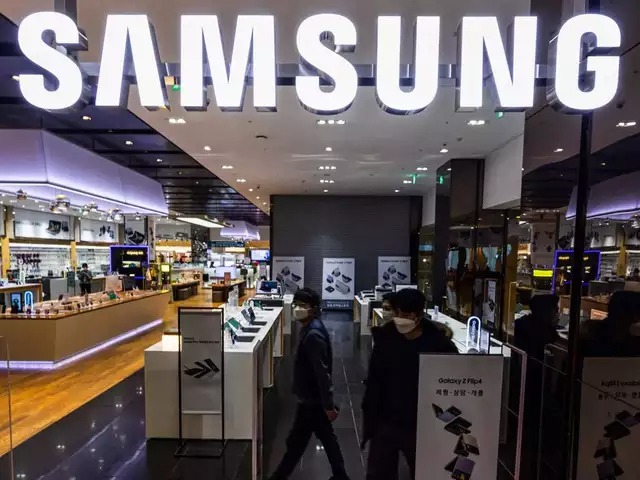Samsung is a large multinational conglomerate that operates in several industries, including electronics, appliances, and semiconductors. Despite its many successes, the company has faced several challenges in recent years.
Some of the challenges that Samsung is currently facing include:
- Intense Competition: Samsung operates in highly competitive industries, where companies are constantly innovating and introducing new products. To overcome this challenge, Samsung needs to continue to invest in research and development to stay ahead of the competition.
- Economic Uncertainty: The global economy is constantly changing, and this can have a significant impact on Samsung’s business. To overcome this challenge, Samsung needs to be agile and adaptable, able to adjust its strategies and operations in response to changing economic conditions.
- Geopolitical Risks: Samsung is based in South Korea, which is located in a volatile region of the world. This can create geopolitical risks that can impact the company’s operations. To overcome this challenge, Samsung needs to be aware of the geopolitical risks it faces and develop strategies to mitigate these risks.
- Cybersecurity Threats: As a technology company, Samsung is vulnerable to cybersecurity threats. To overcome this challenge, Samsung needs to invest in cybersecurity measures and ensure that its products are secure.
- Brand Perception: Samsung has faced some negative publicity in recent years, particularly with the Galaxy Note 7 battery issues. To overcome this challenge, Samsung needs to focus on building a positive brand perception through effective marketing and customer engagement.
Strategies to overcome challenges faced by Samsung:
- Innovation
- Diversification
- Cybersecurity
Innovation:
Innovation is a key strategy for Samsung to overcome its challenges and maintain its position as a leader in the global market. The company has a long history of investing in research and development (R&D) to develop new products and technologies. Samsung has a dedicated team of researchers and engineers who work on cutting-edge technologies and collaborate with external partners to create new products and services.
In addition to internal R&D efforts, Samsung also actively seeks out and acquires startups and emerging technologies that can complement its existing business operations. This strategy enables Samsung to expand its product offerings and accelerate innovation.
Creating a culture of innovation within the company is also essential for Samsung’s success. The company fosters innovation by encouraging employees to think creatively and take risks. Samsung provides training programs, rewards for innovative ideas, and open communication channels to support its employees in their innovative efforts.
Collaboration with partners, such as universities and research institutions, is another critical strategy for Samsung to foster innovation. By sharing knowledge and expertise with external partners, Samsung can accelerate the development of new technologies and products.
Overall, innovation is a crucial strategy for Samsung to overcome its challenges, meet the changing needs of consumers, and maintain its position as a global leader in various industries.
Diversification:
Diversification is another critical strategy for Samsung to overcome its challenges and maintain its competitive edge in the global market. The company operates in several industries, including electronics, appliances, and semiconductors. However, Samsung should continue to diversify its product offerings to reduce its reliance on a few product lines.
To achieve this, Samsung can expand its business operations into new industries or markets. For example, the company could expand its operations in the healthcare industry by developing new medical devices and technologies. Samsung could also explore opportunities in the renewable energy sector by developing new solar panels and batteries.
Another approach to diversification is to expand the product offerings within its existing industries. For example, Samsung could develop new types of smartphones or home appliances that cater to different consumer segments. By doing so, Samsung can reduce its exposure to economic volatility and geopolitical risks.
Diversification can also help Samsung to capture new revenue streams and maintain a sustainable growth rate. However, the company must be careful to balance its diversification efforts with its core business operations. Samsung should ensure that its diversification efforts align with its overall business strategy and do not distract from its core competencies.
Overall, diversification is a critical strategy for Samsung to overcome its challenges, reduce risks, and capture new growth opportunities in the global market.
Cybersecurity:
Cybersecurity is a critical challenge that Samsung must address to maintain customer trust and safeguard its reputation. Samsung is known for its innovative products and cutting-edge technologies, but it is also a target for cybercriminals seeking to steal sensitive data or compromise its operations.
To overcome cybersecurity challenges, Samsung should focus on the following strategies:
- Implementing Robust Cybersecurity Measures: Samsung should implement robust cybersecurity measures, such as firewalls, encryption, and multi-factor authentication. The company should also conduct regular security audits to identify vulnerabilities and proactively address them.
- Educating Employees: Samsung should educate its employees on the importance of cybersecurity and train them to identify and report potential security threats. This can be achieved through training programs, simulations, and regular communication.
- Partnering with Cybersecurity Experts: Samsung should partner with cybersecurity experts to stay up-to-date on the latest threats and technologies. The company should also collaborate with industry organizations to share knowledge and best practices.
- Creating a Cybersecurity Culture: Samsung should create a culture of cybersecurity within the company by emphasizing the importance of security in all aspects of its operations. This can be achieved by establishing policies and procedures that prioritize security and regularly communicating these to employees.
Overall, cybersecurity is a critical challenge that Samsung must address to maintain customer trust and safeguard its reputation. By implementing robust cybersecurity measures, educating employees, partnering with cybersecurity experts, and creating a cybersecurity culture, Samsung can overcome these challenges and maintain its position as a global leader in various industries.
Conclusion:
Samsung faces various challenges in the current business environment, including the need to maintain its competitive edge through innovation, reduce risks through diversification, and safeguard its reputation through robust cybersecurity measures. To overcome these challenges, Samsung should continue to invest in R&D, acquire startups and emerging technologies, foster a culture of innovation, collaborate with partners, expand its product offerings, implement robust cybersecurity measures, educate employees, partner with cybersecurity experts, and create a cybersecurity culture.
By adopting these strategies, Samsung can maintain its position as a global leader in various industries, capture new growth opportunities, and meet the changing needs of consumers. As a result, Samsung will be well-positioned to overcome its challenges and achieve sustainable growth in the global market.

















